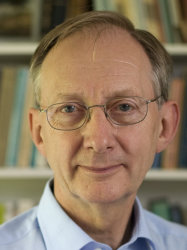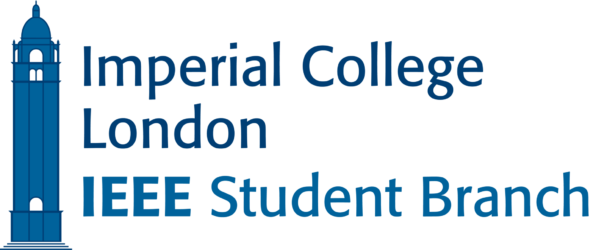IEEE conference on Advances in Communications, Devices and Systems (ACDS) – September 3rd 2021
The Imperial College IEEE Student Branch is teaming up with the EEE PhD Student Representatives to bring you the
2021 IEEE Conference on Advances in Communications, Devices and Systems
(ACDS)
When: 3rd of September 2021
Where: Online – Zoom
Registration: Please follow this Eventbrite link to register.
This year’s online conference will feature a keynote presentation by Dr Ayush Bhandari, followed by technical discussion sessions led by Imperial College postgraduates. The theme of the conference is “Things that might shock you” and the topics that will be discussed could be considered somewhat controversial in the field of Electrical and Electronic Engineering.
The conference will conclude with the presentation of awards and a social gathering.
Join us on the 3rd of September for what is surely going to be an entertaining event full of intriguing and insightful discussions!
The full schedule of the event is the following:
09:30 – 09:45 –> Welcome
09:45 – 10:45 –> Keynote Speaker – Ayush Bhandari
“Some Short Stories from Academia”
10:45 – 11:00 -> Morning break
11:00 – 12:00 –> First discussion
“The Future of Computing lies not in Software but in Hardware“
12:00 – 13:00 -> Second discussion
“The Hidden Environmental Cost of Machine Learning: Is it worth it?“
13:00 – 13:40 –> Lunch break
13:40 – 13:45 –> Welcome back
13:45 – 14:45 –> Third discussion
“Should my Electric Vehicle be used for my benefit or for the greater good?“
14:45 – 15:45 –> Fourth discussion
“Subsurface imaging – Incremental development vs revolutionary change”
15:45 – 16:00 -> Afternoon break
16:00 – 17:00 –> Fifth discussion
“To gas or not to gas: the quest for sustainable energy”
17:00 – 17:30–> Winner announcements and social gathering
IEEE conference on Advances in Communications, Devices and Systems (ACDS) – September 10th 2019
Welcome to the 2019 IEEE conference on Advances in Communications, Devices and Systems (ACDS) event page.
The conference will take place on September 10th 2019 at Imperial College, in the Department of Electrical and Electronic Engineering.
This is a conference for postgraduate students from all universities, featuring research presentations for PhD students, to cover various topics related to Electrical and Electronics Engineering, as well as a poster competition for master’s students, with prizes for best talks and best poster.
Professor Sir John Pendry, Chair in Theoretical Solid State Physics from Imperial College Department of Physics, will be the keynote speaker of the conference, giving the talk Capturing the Light on the Nanoscale (see full abstract below).
The event also features a career fair, so bring your CV and be ready to network, you might find your next employer!
The full schedule of the event is the following:
| 09:30 – 10:00 EEE Dept Level 4 |
Registration and Coffee |
| 10:00 – 10:15 EEE Dept Room 408 |
Welcome talk IEEE Student Branch Committee |
| 10:15 – 11:00 EEE Dept Room 408 |
Keynote: Capturing the Light on the Nanoscale Professor Sir John Pendry |
| 11:00 – 12:00 EEE Dept Room 408 |
Panel Discussion Dr Jessica Bian – Grid-X Partners Dr David Hillerkuss – Huawei Dr Matt Horsnell – ARM Prof Sir John Pendry – Imperial College London |
| 12:00 – 13:30 EEE Dept Room 406 & 407 |
Lunch and Master’s Students Poster Competition |
| 13:30 – 16:00 EEE Dept Room 408 |
PhD Students Research Presentations 13:30 – Piyush Sharma Heart rate variability estimation from short-term acoustic recordings at neck 13:45 – Apostolos Panagiotopoulos 14:00 – Hakan Merdan 14:15 – Ahmed Mohammed Patel 14:30 Coffee Break 15:00 – Miguel Cacho Soblechero 15:15 – Dandan Zhang 15:30 – Luca Cimbaro 15:45 – Andreas Svela |
| 16:00 – 18:30 EEE Dept Room 406 & 407 |
Careers Event and Reception Including representatives from ARM, Intel, Huawei, MediaTek, UK Power Networks |
Capturing Light on the Nanoscale
Professor Sir John Pendry

Abstract: Conventional optics controls light on the scale of roughly a micron – approximately the wavelength of visible light. To control light in the world of nanoscience requires a new understanding in which we look inside the wavelength at the component electric and magnetic fields. Exploiting the new concepts we have designed devices that compress light into less than a square nanometre, thus enhancing the energy density by a factor of a million which opens the way to single molecule sensing and switching light with light – the optical transistor. Finally I shall discuss negative refraction and how it leads to the construction of a lens whose resolution is unlimited by the wavelength of light.
Biography: Professor Sir John Pendry is a theoretical physicist who has made significant contributions to our understanding of the way in which light interacts with matter. He has worked at the Blackett Laboratory, Imperial College London, since 1981. He began his career in the Cavendish Laboratory, Cambridge, followed by six years at the Daresbury Laboratory where he headed the theoretical group. By modelling substances with unusual optical properties often known as metamaterials, he has developed an ‘invisibility cloak’ able to hide objects from electromagnetic radiation.
Sir John Pendry’s pioneering work in optics has also led to the experimental realization of the world’s first perfect lens, capable of overcoming traditional limitations on image resolution. Recognized for his ability to represent complex physical situations via realistic mathematical models, the impact of
his contribution can today be seen in a variety of fields where wave propagation is of interest — ranging from seismology to nanoscale engineering. The breadth and impact of John’s work has won him many of the most important awards in his field, including the Dirac Medal and the Royal Medal of the Royal Society. In 2004 he was made a Knight Bachelor for his services to science.

